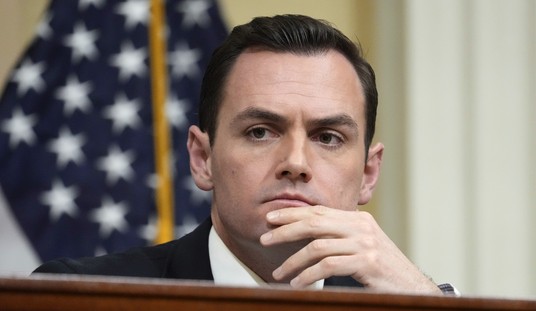The intimation by National Security Adviser John Bolton the U.S. would consider sanctions against European allies over the Iran Deal is not really the sort of news one wants to wake up to on a Sunday. The man with the best mustache in politics did seem coy to CNN’s Jake Tapper on whether it’d actually happen but certainly left the door open (Author note: transcript edited for brevity, full video here):
TAPPER: So, President Trump said this week that — quote — “Any nation that helps Iran in its quest for nuclear weapons could also be strongly sanctioned by the United States.”
Is the United States going to sanction European companies that do business with Iran?
BOLTON: I think the issue here is what the Europeans are going to do.
If they’re going to see that it’s not in their interest to stay in the deal — we’re going to have to watch what the Iranians do. They’d love to stay in the deal. Why shouldn’t they? They got everything they wanted from the Obama administration.
But I think the Europeans will see that it’s in their interest, ultimately, to come long with us…
TAPPER: Right.
But, with all due respect, I didn’t get an answer to the question.
Is the U.S. going to impose sanctions on European companies that continue to do business with Iran?
BOLTON: I — I think I did give the answer, and the answer…
TAPPER: But you said, we’ll see.
BOLTON: The answer is, it’s possible.
TAPPER: It’s possible.
BOLTON: It depends on the conduct of other governments.
This is a bad idea. A really bad idea. I’ve written about the problems with sanctions in the past and my opinion isn’t changing. They’re a bad idea and the fallout from them will cause even more unintended economic injury. Say the U.S. decides to put sanctions on German businesses which drive their top exports and Germany decides to do sanctions in return. Those sanctions would seep down and nail the American worker. Here’s what Cato’s Emma Ashford wrote in 2016 on Russia’s reaction to the U.S. and European sanctions:
Adding to the pain was the Russian government’s decision to issue its own set of sanctions, which have barred the import of Western foodstuffs. Although the move has hurt eastern European farmers and exporters, it has also created shortages and increased food prices inside Russia. Then there was the unforeseen credit crunch among ordinary consumers. Fearful of a legal backlash, many U.S. and European banks cut off not only billionaire bank owners but also many of their customers. In March 2014, for example, Visa and MasterCard suspended all transactions from four Russian banks in response to sanctions placed on its owners, effectively canceling the credit cards of ordinary Russian consumers. The U.S. government had to intervene to convince the companies to start processing payments again.
At the same time that the sanctions have punished the population at large, the Kremlin has sheltered key supporters from their impact. For example, from March to December 2014, companies linked to the Putin cronies Arkady Rotenberg and Gennady Timchenko received 12 percent more in government contracts than they had during the entire previous year. The government also stripped Russia’s largest private bank, Alfa-Bank, of a lucrative contract to service the country’s electricity market, awarding it instead to Bank Rossiya.
So much for sanctions actually working, even if Germany isn’t Russia and tends to be a bit more pro-America than Russia. There’s also the chance American sanctions on traditional allies could thrust them into Russia’s willing and open arms. The Russian Bear wants to flex its economic muscles across the globe, so American sanctions would give them the chance to increase German imports while sending their own goods to Germany. The same could be said about any other country the U.S. decides to put sanctions on for not going along with America’s decision to rip up the Iran Deal. It’s arguable this is why Cuba remained, and is still, communist. The Americans isolated Cuba with their trade embargo, driving them into the USSR’s arms and the UK and Canada’s once the USSR fell. UAE and China are Iran’s current main trade partners and it’s doubtful either of them will have issues with Iran’s deplorable human rights record. U.S. involvement with Iran via trade would encourage more freedom and free markets even if it might take years to see any real results.
I’m sympathetic towards opponents of the Iran Deal because I didn’t think it was really a good deal. The framework seemed more palatable to me because it appeared to have a bit more teeth than the final one. The fact it did not go through the Senate as a treaty- which it should have done- also irked me to no end. Yet pulling out of the deal seems like a bad idea, and imposing sanctions on countries abiding by it is shortsighted policy. It might get support from Republicans and Trump’s base, but it’s not good policy. Free trade is the source of all reform, to paraphrase Bastiat, and more, not less, should be encouraged. Even if it’s with European countries the U.S. disagrees with on the Iran Deal.








Join the conversation as a VIP Member